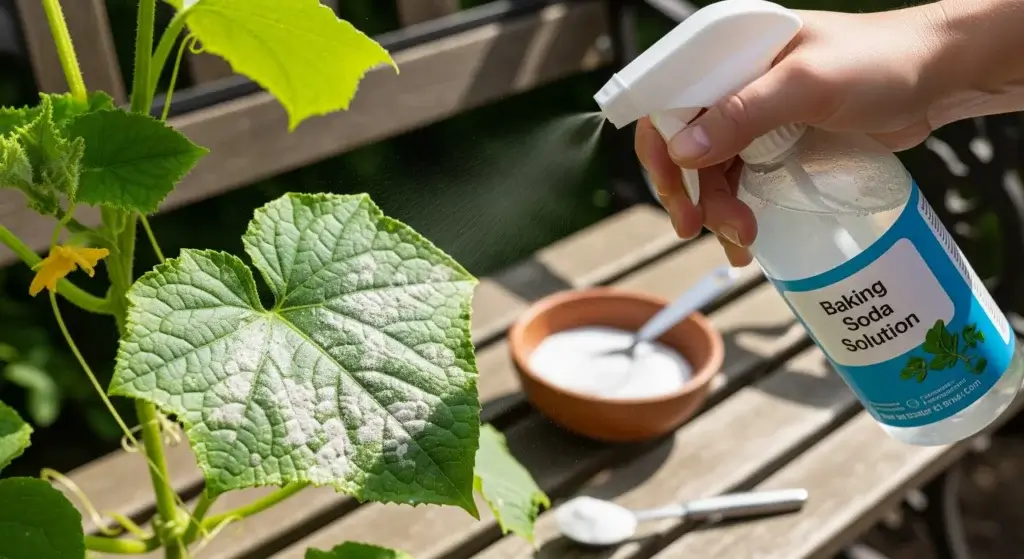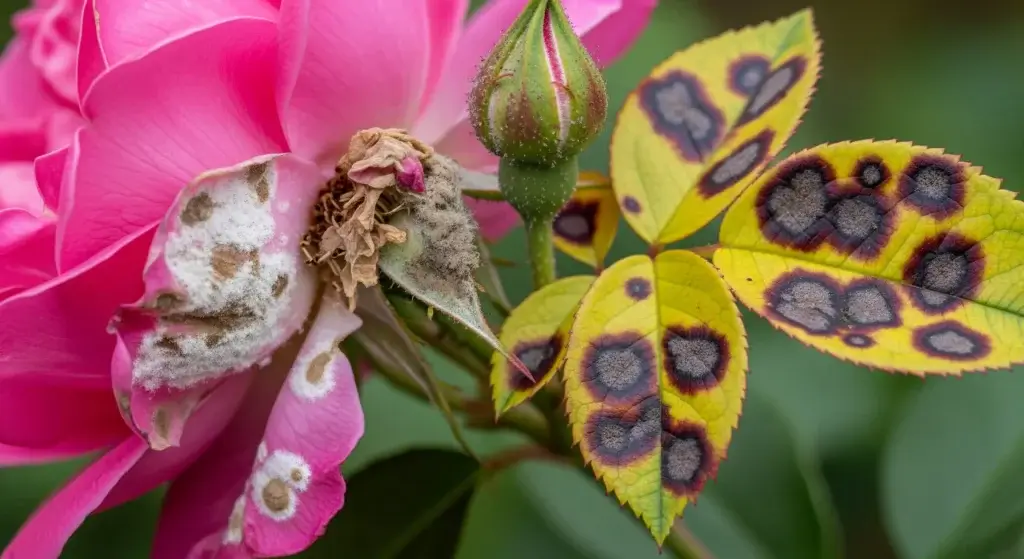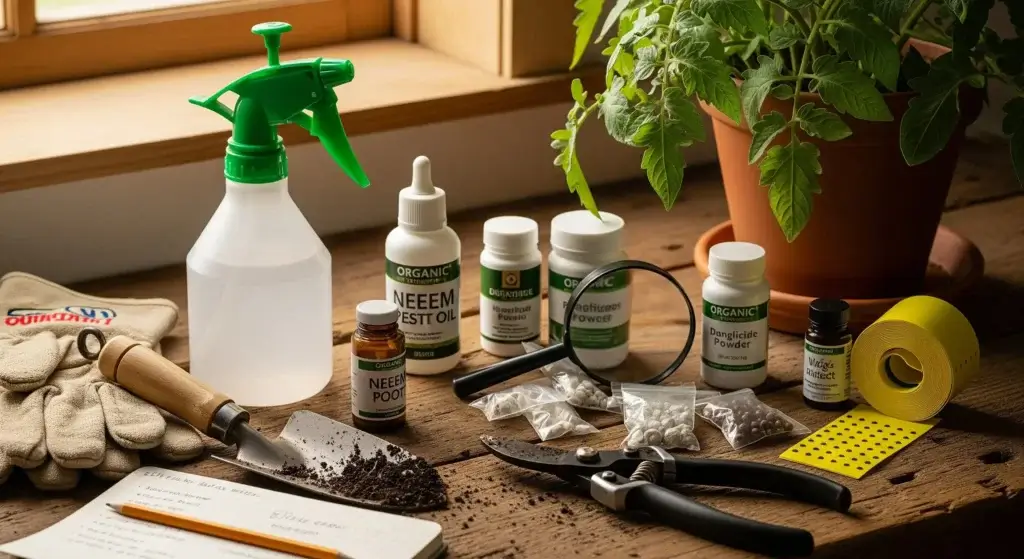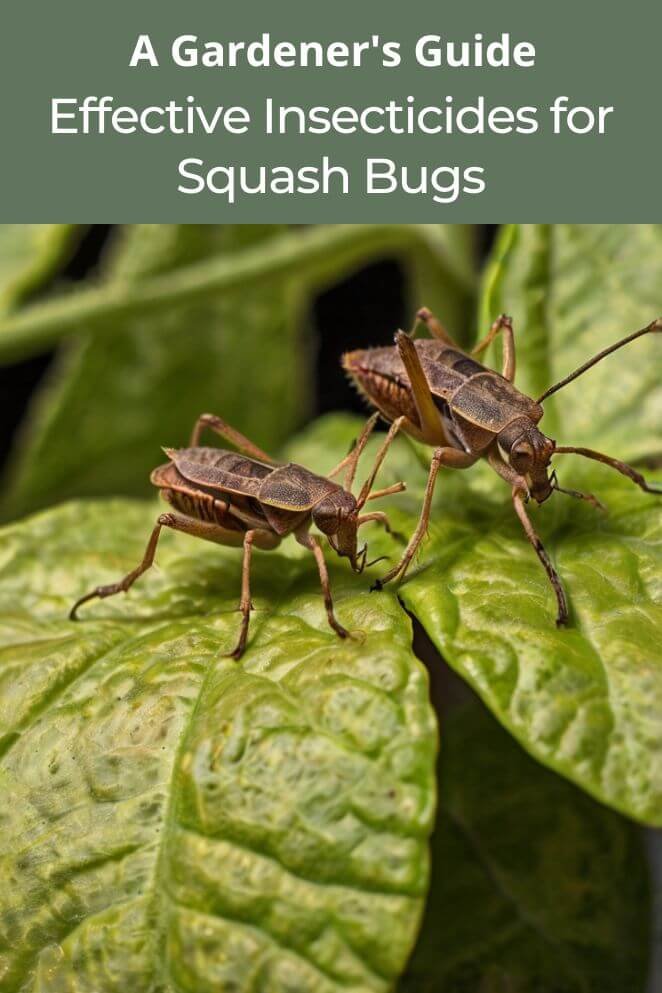
Squash bugs can be a real headache for gardeners, particularly those who cherish their zucchini, pumpkins, and other squash plants.
These pests can cause significant damage, leading to wilting and ultimately killing the plants if left unchecked.
In this article, we’ll explore various insecticide options to combat squash bugs, including natural and chemical solutions, along with application methods, benefits, drawbacks, and prevention tips.
Natural Insecticides
Organic insecticide options
Organic insecticides are derived from natural sources and are approved for organic gardening.
They provide an eco-friendly way to control squash bugs without synthetic chemicals.
- Read also: A Guide to Eradication: Squash Bugs on Zucchini Plants
- Read also: Squash Bugs vs. Stink Bugs: A Detailed Guide for Gardeners
Neem oil
Neem oil is a powerful natural insecticide derived from the seeds of the neem tree.
It disrupts the life cycle of squash bugs by affecting their feeding and reproduction.
- Application: Mix 2 tablespoons of neem oil with 1 gallon of water and a few drops of dish soap. Spray the mixture directly on the affected plants, focusing on the undersides of leaves where squash bugs lay eggs.
- Benefits: Neem oil is non-toxic to humans and animals and can help control a variety of garden pests.
- Drawbacks: It requires frequent reapplication, especially after rain.
Diatomaceous earth
Diatomaceous earth (DE) is a powder made from fossilized algae. It works by damaging the exoskeletons of squash bugs, causing them to dehydrate and die.
- Application: Dust DE around the base of your plants and directly on the insects.
- Benefits: It is safe for humans and pets and does not harm beneficial insects when used correctly.
- Drawbacks: DE can be less effective in humid conditions and must be reapplied after watering or rain.
Insecticidal soap
Insecticidal soap is another effective natural remedy that works by suffocating squash bugs.
- Application: Mix insecticidal soap according to the package instructions and spray it on the bugs and eggs.
- Benefits: Safe for most plants and can be used up until the day of harvest.
- Drawbacks: It may need frequent application and can be less effective on larger infestations.
Pyrethrin
Pyrethrin is derived from chrysanthemum flowers and is effective against a wide range of pests, including squash bugs.
- Application: Spray pyrethrin-based insecticides directly on the bugs and plants.
- Benefits: Fast-acting and breaks down quickly, minimizing environmental impact.
- Drawbacks: It can harm beneficial insects and needs careful application to avoid non-target species.
Spinosad
Spinosad is a bacterial fermentation product that targets the nervous system of insects.
- Application: Spray spinosad on the foliage of affected plants.
- Benefits: Effective against a variety of pests and has a low impact on beneficial insects.
- Drawbacks: It may degrade quickly in sunlight and requires reapplication.
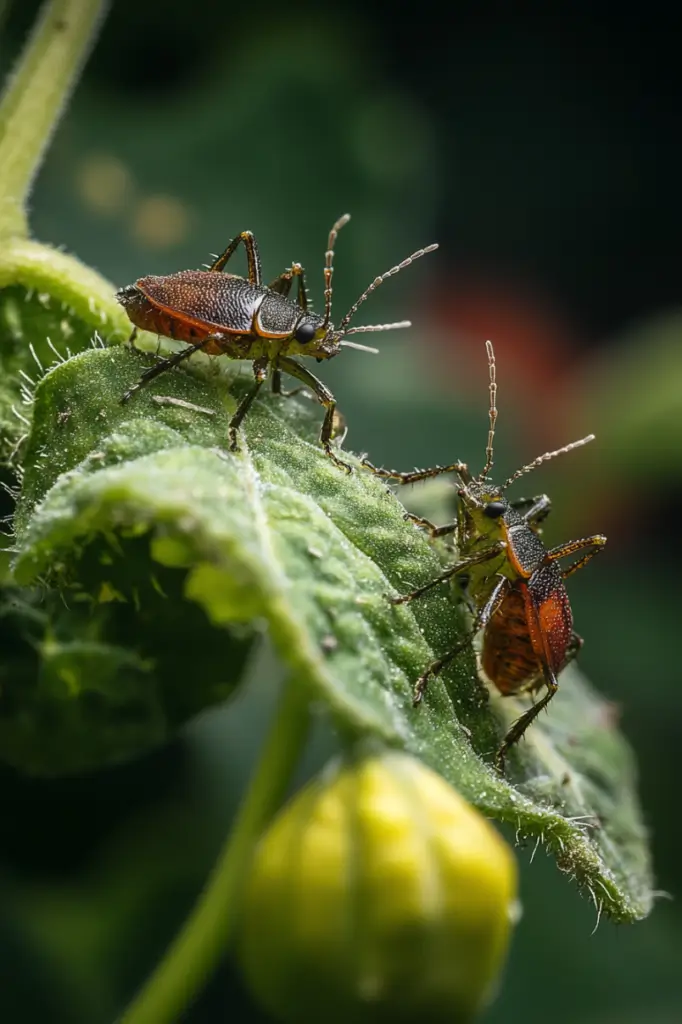
How to Apply
Applying natural insecticides effectively is key to controlling pests like squash bugs while ensuring that the treatment is safe for your garden and the environment.
Here’s how to do it:
Timing
The best times to apply insecticides are early in the morning or late in the evening.
During these cooler times, temperatures are lower, which helps prevent the insecticide from evaporating too quickly.
Coverage
For the insecticide to work well, it’s important to cover all areas of the plant where pests might be hiding.
Squash bugs often linger on the undersides of leaves and lay their eggs there.
Be sure to spray thoroughly on these areas to reach the bugs and their eggs effectively.
Frequency
Natural insecticides generally need to be reapplied to stay effective, especially after rain or heavy watering.
Rain can wash away the insecticide, so reapplication ensures that your plants remain protected.
Benefits and Drawbacks
Natural insecticides offer several benefits, but they also come with some drawbacks.
Here’s a closer look:
Benefits
- Environmentally friendly: Natural insecticides are designed to have minimal impact on the environment. They are less likely to harm non-target species.
- Safety: These products are generally safe to use around humans and pets. Since they come from natural sources.
- Sustainability: Many natural insecticides are made from renewable resources, which means they have a lower environmental footprint.
Drawbacks
- Efficacy: Natural insecticides might need to be reapplied more frequently than chemical alternatives, especially if you have a large infestation.
- Cost: Natural insecticides can sometimes be more expensive than chemical options. This can be a consideration if you’re managing a large garden.

Chemical Insecticides
Chemical insecticides can be highly effective in controlling squash bug infestations but should be used with caution due to potential risks to human health and the environment.
Different types of chemical insecticides
Carbaryl
Carbaryl is a broad-spectrum insecticide that targets a wide variety of garden pests, including squash bugs.
It works by disrupting the nervous system of insects, leading to their death.
While it is effective, carbaryl can also impact beneficial insects and other wildlife, so it’s important to use it carefully and follow application instructions to minimize environmental impact.
Permethrin
Permethrin is a synthetic version of pyrethrin, a natural insecticide derived from chrysanthemum flowers.
It is known for its quick knockdown effect on pests, including squash bugs.
Permethrin works by affecting the nervous system of insects, causing them to become paralyzed and die.
Although effective, permethrin can be toxic to beneficial insects and should be applied with caution to avoid harming non-target species.
Malathion
Malathion is an organophosphate insecticide that is effective against a broad range of insects.
It interferes with the nervous system of pests, leading to their death.
While malathion can control many garden pests, including squash bugs, it is also known to be more toxic to humans and pets compared to some other insecticides.
Proper handling and application are crucial to ensure safety.
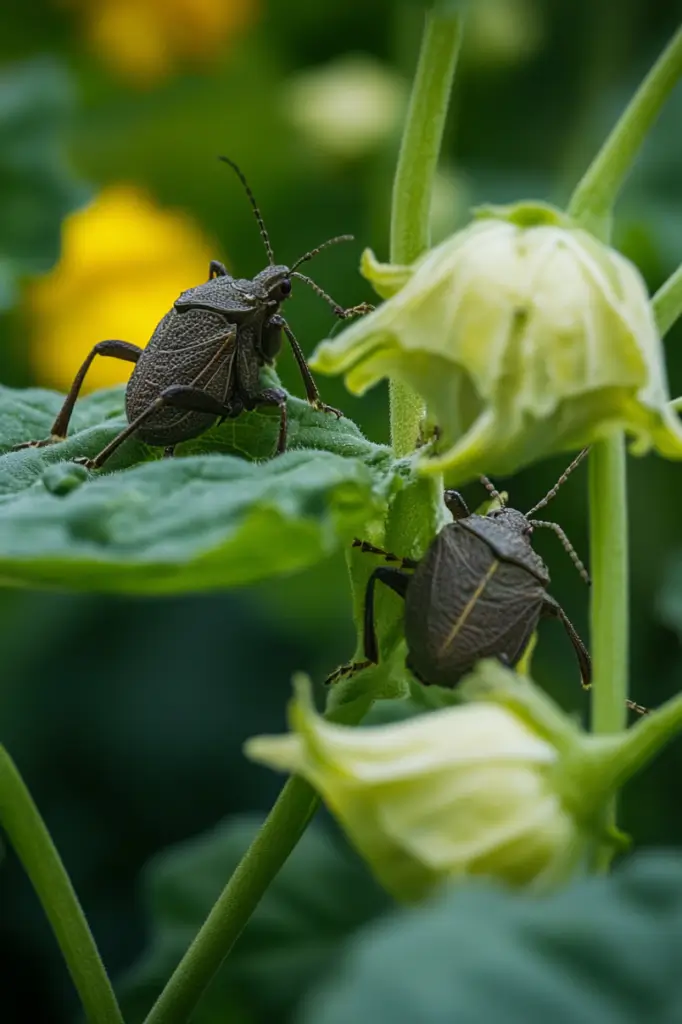
When and Why to Consider Chemical Options
Chemical insecticides should be considered when:
When natural methods fail
If you’ve tried various natural and organic methods to control pests, like neem oil or diatomaceous earth, but they haven’t been effective, chemical insecticides might be necessary.
Sometimes, natural methods may not provide enough power to tackle a large or stubborn infestation.
In such cases, chemical insecticides can offer a more potent solution to get the situation under control.
Severe infestations
For severe infestations where pests, such as squash bugs, are significantly threatening the health of your plants or your overall crop yield, chemical insecticides may be needed.
When the pest problem is extensive and poses a serious risk to your garden’s productivity, using a chemical option can help ensure you protect your crops and prevent further damage.
Safety Precautions
When using chemical insecticides, it’s important to follow safety precautions to protect yourself, others, and the environment.
Here’s a detailed look at the key safety measures:
Read labels
Always read the label on the insecticide product carefully.
The label provides crucial information on how to use the product safely and effectively, including recommended application rates and any safety warnings.
Protective gear
When applying chemical insecticides, it’s essential to wear appropriate protective gear.
This typically includes gloves to protect your hands, a mask to avoid inhaling any chemicals, and protective clothing to prevent skin contact.
Storage
Store chemical insecticides in a safe and dry place, out of reach of children and pets.
Keeping them in a secure location prevents accidental ingestion or exposure and ensures that they remain effective.
Always follow any specific storage instructions provided on the label.
Avoid overuse
Using chemical insecticides sparingly is important for several reasons.
Overuse can lead to pests developing resistance to the chemicals, making them less effective over time.
Additionally, excessive use can harm the environment and beneficial insects.
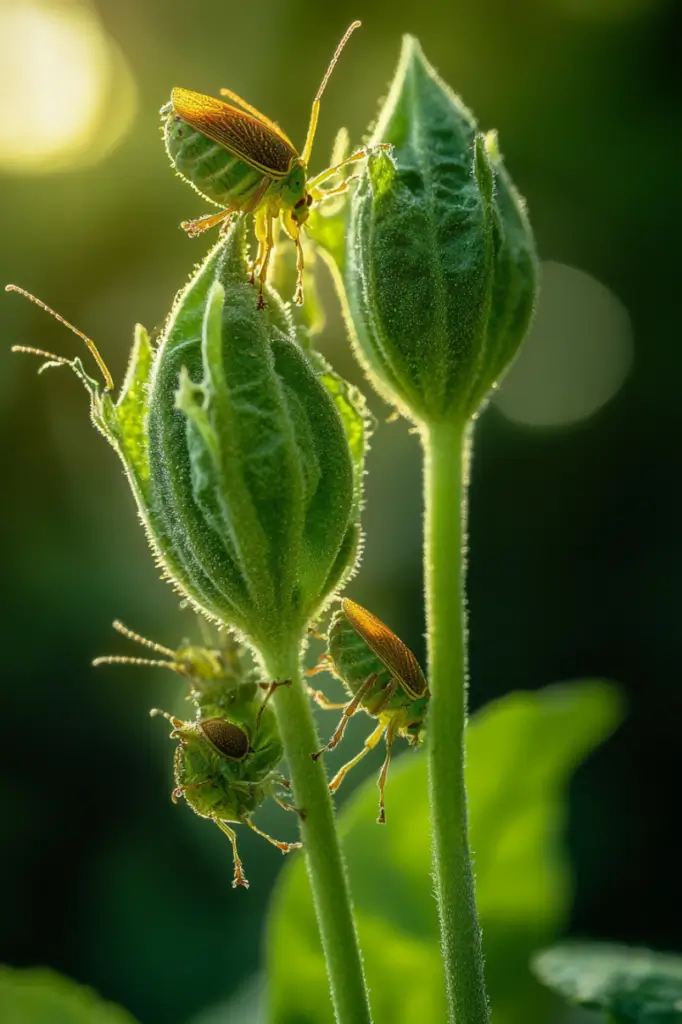
Prevention Tips
Preventing squash bug infestations is key to keeping your garden healthy and reducing the need for insecticides.
Here’s how you can effectively prevent these pests from taking over:
Crop rotation
Rotate your squash plants with crops that squash bugs don’t like or can’t use as hosts.
For example, if you plant squash in one area this year, choose a different type of vegetable for that spot next year.
This disrupts the squash bugs’ life cycle, making it harder for them to find a place to lay eggs and feed.
Row covers
Using row covers is a great way to protect young squash plants.
These covers are made of lightweight fabric that you drape over your plants.
They act like a barrier, keeping squash bugs and other pests away while still allowing sunlight and rain to nourish the plants.
Just make sure to secure the edges so the bugs can’t sneak underneath.
Clean up debris
Squash bugs love to hide in plant debris and weeds.
Regularly clean up fallen leaves, dead plants, and weeds from your garden.
This helps eliminate places where squash bugs might hide or overwinter, reducing the chance of an infestation in the next growing season.
Handpicking
Inspect your plants regularly for squash bugs and their eggs.
If you spot them, remove them by hand.
This simple but effective method helps control the bug population before they can cause significant damage.
Be sure to check the undersides of leaves, as this is where squash bugs often lay their eggs.

- Read also: Beyond Pesticides: The Importance of Integrated Pest Management
- Read also: Stink Bug Plant Damage and How to Protect Your Garden
Conclusion
Controlling squash bugs can be challenging, but with the right strategies, you can protect your plants and enjoy a healthy harvest.
Natural and organic insecticides offer safe and environmentally friendly options, while chemical insecticides can be effective in severe cases.
Prevention and proper application are key to managing squash bug infestations.
By understanding your options and implementing these tips, you’ll be well-equipped to keep squash bugs at bay.

